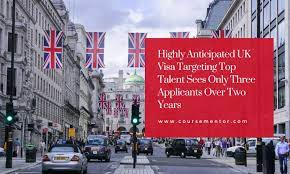Inefficiencies in air travel, including flight cancellations, delays, and lengthy security checkpoints, are leading more travelers to opt for alternatives whenever possible. According to Geoff Freeman, President and CEO of the U.S. Travel Association, travelers, on average, are planning to reduce their air travel by two trips over the next year due to frustrations with these issues, resulting in a projected loss of 27 million trips, $71 billion in spending, and $4.5 billion in tax revenue.Freeman highlighted various factors contributing to these problems. Air traffic control and Customs and Border Protection positions are in high demand, and the Transportation Security Administration (TSA) faces a workforce attrition rate significantly higher than other government positions, standing at around 20%. These issues have arisen from years of underinvestment in the travel sector, leading to an understaffed and underfunded system.TSA wait times and security checkpoint procedures are particularly vexing for travelers.
 The process still requires non-TSA PreCheck members to remove items such as shoes, belts, and liquids before passing through security, leading to slow and cumbersome experiences. Freeman noted that the technology to expedite security checks is available but not being deployed as swiftly as in other countries.While TSA security measures have been in place since the aftermath of 9/11, the check-in process has seen little material evolution since then. Programs like Global Entry and TSA PreCheck offer expedited check-in processes, but they often involve lengthy enrollment periods. Many European markets have adopted advanced technology that eliminates the need to remove shoes or belts during security checks, and some countries, like Spain and the United Kingdom, are planning to end the ban on carrying liquids in carry-on luggage. The public perception regarding the greater adoption of technology to speed up security processes is generally positive, with nearly 60% of air travelers in favor of the federal government reassessing security measures due to technological advancements. Approximately 66% are comfortable sharing biometric data. Business travel has been particularly affected by air travel inefficiencies, with one-third of business travelers reporting a reduction in travel compared to pre-pandemic levels. A survey revealed that 38% of companies have implemented policies restricting business travel.To address these issues, Freeman emphasized the need for significant and sustained investments in the Federal Aviation Administration (FAA) and called for a stronger focus on the FAA's strategy. Improving the air travel experience is crucial for the recovery of business travel, which has lagged behind other segments.Efforts to enhance the traveler experience would be facilitated by increased transparency from the government regarding its technological vision and the benefits it can bring.In conclusion, addressing air travel inefficiencies, increasing transparency, and investing in infrastructure are key steps toward improving the travel experience and supporting the recovery of the travel industry, particularly business travel.
The process still requires non-TSA PreCheck members to remove items such as shoes, belts, and liquids before passing through security, leading to slow and cumbersome experiences. Freeman noted that the technology to expedite security checks is available but not being deployed as swiftly as in other countries.While TSA security measures have been in place since the aftermath of 9/11, the check-in process has seen little material evolution since then. Programs like Global Entry and TSA PreCheck offer expedited check-in processes, but they often involve lengthy enrollment periods. Many European markets have adopted advanced technology that eliminates the need to remove shoes or belts during security checks, and some countries, like Spain and the United Kingdom, are planning to end the ban on carrying liquids in carry-on luggage. The public perception regarding the greater adoption of technology to speed up security processes is generally positive, with nearly 60% of air travelers in favor of the federal government reassessing security measures due to technological advancements. Approximately 66% are comfortable sharing biometric data. Business travel has been particularly affected by air travel inefficiencies, with one-third of business travelers reporting a reduction in travel compared to pre-pandemic levels. A survey revealed that 38% of companies have implemented policies restricting business travel.To address these issues, Freeman emphasized the need for significant and sustained investments in the Federal Aviation Administration (FAA) and called for a stronger focus on the FAA's strategy. Improving the air travel experience is crucial for the recovery of business travel, which has lagged behind other segments.Efforts to enhance the traveler experience would be facilitated by increased transparency from the government regarding its technological vision and the benefits it can bring.In conclusion, addressing air travel inefficiencies, increasing transparency, and investing in infrastructure are key steps toward improving the travel experience and supporting the recovery of the travel industry, particularly business travel.
















0 comments:
Post a Comment